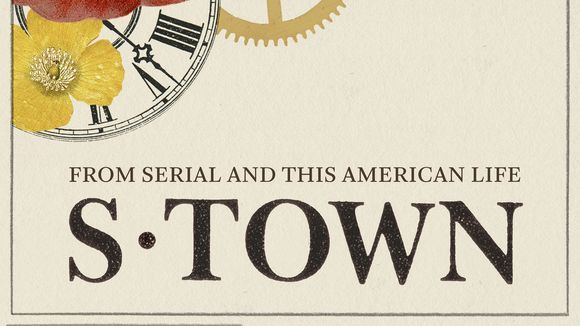If you love the Serial Podcasts as much as I do, then you’re probably going to give S-Town a try, even though 1) it isn’t Serial No. 3, and 2) it’s not narrated by Sarah Koenig.
When all seven episodes dropped on March 28, I found plenty of tedious tasks to do so I could binge without too much interruption. I listened while the boys worked on school assignments independently, and I listened while I found random spaces to clean around the house. I listened at the gym and in the car and in the restroom. Every moment I didn’t have to talk to someone, I was listening to S-Town. By the end of the day, as episode seven ended, I knew I’d start all over again and listen a second time.
Yes, it is as good and interesting as Serial, but it’s not at all what I, and many listeners, expected.

I won’t spoil the series for you because you must go into S-Town completely blind. It works best if you don’t know anything beforehand. Do yourself a favor and do not Google the series.
However, before the inspiration left me, I wanted to share five things I’ve learned from S-Town.
No. 1: Ignorance can be perpetual. Some people can pick up and leave a place. Some can’t. Some wouldn’t know where to start, and some don’t have the inclination to try. Small Town America (“small” is not what the S stands for, by the way) can be charming and inviting, a place where everyone is family. It can also be a place where ignorance breeds and multiplies. We learn in S-Town that ignorance can be broad and blatant, but it can also exist in the mind of a genius. While listening to the voices of these strangers, I wondered about all the things I don’t know or refuse to acknowledge.
No. 2: Trying to understand someone is worthwhile. Stereotypes exist because they are anchored by real things – cultural norms, societal trends, even mundane things like personal habits. And while stereotypes can create space for understanding, they also leave a lot of room for criticism, judgment, and expectation. We all fall into groups on some level, but we are also comprised of unique personal experiences, influences, and decisions. Brian Reed, the narrator, could’ve walked away from this project when a particular detail fell through, but instead he expressed a desire and need to understand John B. McLemore beyond the reasons that originally brought the two men together. We are a complicated species, but we all deserve consideration in an attempt to be understood.
No. 3: Every story has layers, seen and unseen. In episode one, you think you’re headed down a particular road, but by the time episode seven wraps, you realize all of your predictions were way off. Heck, you abandon all plausibilities by the end of episode two! We are a presumptuous bunch, aren’t we? We recognize our own lives as specific and complicated, yet we fail to extend grace to the complications of others. How quick we are to assume! We may have cause to judge one action over another, but this series reminds us that we ought not to judge the intentions and burdens of others. We have no clue about the matters in one’s heart.
No. 4: Storytelling is the truest form of education. The oral tradition of storytelling predates the written word and transports us to a time when our culture and society was primarily built by this method. It’s how traditions are passed down and how we remember pivotal points in our lives. Telling stories really is as old as time, so it’s no wonder that we still connect with this medium on a basic level. It’s a pivotal way we learn about ourselves, but it’s essential when we need to learn about those who are different from us. When we hear their voices, listen to their stories, when we connect with something they say, we are better for it. Podcasts in general have been one of my favorite 21st Century inventions, but series like S-Town, Serial, and This American Life remind us that the world is big and varied. We should all do a lot less talking and a lot more listening.
No. 5: We cannot and should not waste time. This is a realization I came to a couple of years ago but I’m reminded of it often when a plan falls through, when a loved one dies, when a tragedy happens. Time is a recurring theme in S-Town – how we spend it, how we waste it, how we long for time that’s no longer available, how we wish for a time that’s not yet come. Not wasting time does NOT mean we need to hurry up and hustle, or fill every second of our day with activity. Not wasting time means being intentional and present in the time you have. When we work, we should do so because we have something to contribute, something to add, something to achieve. When we rest, it’s because our mind and body need it. When we choose a book over flipping channels, or a night in instead of a night out, it’s because there’s only a certain type of nourishment that will do. To spend our time wisely means to acknowledge and embrace the reasons for our choices. It means saying yes and no when you mean yes and no. We have no guarantees here. None.

I am curious to hear the overall reactions to S-Town. A simple Google search produced both positive and negative results, people who loved it as much as I did, others who found plenty to complain about, and a few who are undecided.
But isn’t that who we are? A diverse, multi-cultural, mishmash of passionate people who have varying degrees of thought on everything under the sun?
And yet, every single one of us craves a little understanding and tiny bit of grace.
P.S. – S-Town is not for kids.
